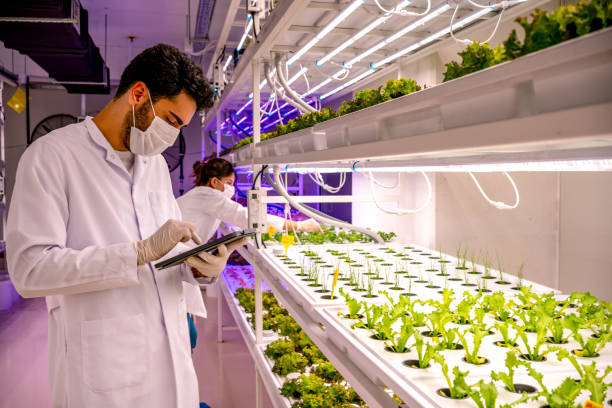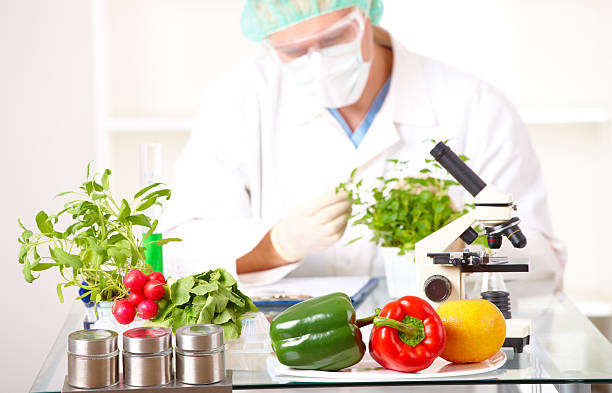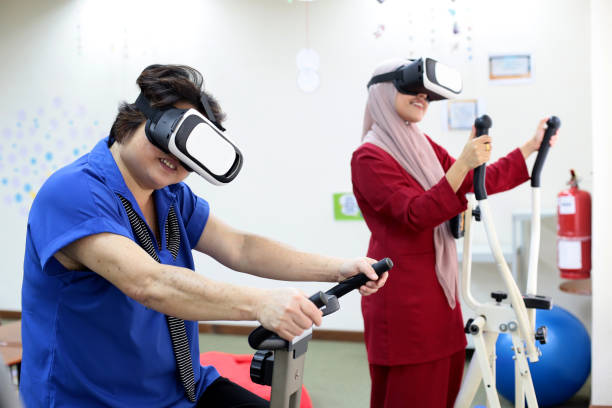When we sit down to enjoy a delicious meal, we often don’t think about the extensive journey our food has taken to reach our plates. From the farm where it was grown to the grocery store where we purchased it, there are many steps involved in bringing food to our tables. However, there is one crucial aspect of this process that is often overlooked – Food Science and Nutrition. These fields play a vital role in ensuring the safety, quality, and nutritional value of our food. In this blog post, we will explore the importance of Food Science and Nutrition and how they impact our everyday lives.
Understanding the Basic Concepts of Food Science
Food science is a multidisciplinary field that combines various branches of science to understand the fundamental principles of food production, processing, and preservation. It encompasses areas such as chemistry, biology, physics, microbiology, and engineering to ensure the safety, quality, and nutritional value of our food.
One of the basic concepts of food science is food safety. Food scientists work tirelessly to develop techniques to prevent contamination and ensure that the food we consume is free from harmful bacteria, toxins, and pathogens. They analyze and study foodborne illnesses, identifying the causes and developing strategies to prevent outbreaks. From farm to fork, food safety is a top priority in every step of the food production chain.
Another crucial concept in food science is food quality. Food scientists analyze the sensory aspects of food, such as taste, aroma, texture, and appearance, to determine its quality. They strive to develop innovative methods to improve the flavor and appeal of food products while preserving their nutritional value. Food quality is not just about taste; it also includes factors such as shelf life, packaging, and sustainability.
Food scientists also focus on food processing and preservation. They study the effects of various processing techniques on the nutritional content of food, exploring methods to retain essential nutrients during processing. They also develop innovative preservation techniques to extend the shelf life of food without compromising its quality.
In addition to these concepts, food science also encompasses food engineering, which involves designing and optimizing food production processes. It includes aspects such as food packaging, food storage, and food transportation. Food engineers work to improve efficiency and reduce waste in the food production chain.
Understanding the basic concepts of food science is essential because it allows us to make informed decisions about the food we consume. It enables us to appreciate the hard work and dedication that goes into ensuring the safety, quality, and nutritional value of the food on our plates. By understanding these concepts, we can contribute to the improvement of food systems and make healthier choices for ourselves and our communities.

The Significant Role of Nutrition in Human Health
The significant role of nutrition in human health cannot be overstated. Our bodies rely on the nutrients found in the food we eat to function properly and maintain optimal health. Good nutrition is not only essential for growth and development, but it also plays a crucial role in preventing chronic diseases and promoting overall well-being.
Nutrition provides our bodies with the energy it needs to carry out daily activities, from walking and talking to breathing and digesting food. The three macronutrients – carbohydrates, proteins, and fats – are the primary sources of energy for our bodies. Carbohydrates provide quick energy, proteins are essential for building and repairing tissues, and fats help in hormone production and insulation. By consuming a balanced diet that includes all three macronutrients, we ensure that our bodies have the fuel they need to function efficiently.
In addition to energy, proper nutrition also supplies our bodies with vitamins and minerals. These micronutrients are vital for various bodily functions, such as immune system support, bone health, and cell growth. For example, vitamin C helps boost our immune system, while calcium strengthens our bones and teeth. Consuming a variety of fruits, vegetables, whole grains, lean proteins, and healthy fats ensures that we receive a wide range of essential vitamins and minerals.
Proper nutrition also plays a crucial role in preventing chronic diseases such as heart disease, diabetes, and obesity. A diet high in fruits, vegetables, whole grains, and lean proteins can lower the risk of developing these conditions. On the other hand, a diet high in reused foods, impregnated fats, and added sugars increases the threat of these conditions. By making healthier food choices and prioritizing nutrition, we can significantly reduce our chances of developing chronic illnesses and enjoy a better quality of life.
Furthermore, nutrition plays a significant role in mental health. Studies have shown that certain nutrients, such as omega-3 fatty acids and B vitamins, can help improve mood and reduce the risk of depression. A healthy diet can also enhance cognitive function, memory, and concentration.
Overall, the significant role of nutrition in human health cannot be ignored. It is the foundation of our well-being, supporting our physical, mental, and emotional health. By making conscious choices about the food we consume and prioritizing a balanced and nutritious diet, we can optimize our health and lead fulfilling lives.

The Interconnection between Food Science and Nutrition
Food science and nutrition are inherently interconnected, with each field relying on and influencing the other. Food science provides the foundation for understanding the composition and properties of food, while nutrition focuses on how that food impacts our bodies and overall health. By exploring this interconnection, we can gain a deeper appreciation for the importance of both fields.
Food science is instrumental in ensuring that the food we consume is safe, high quality, and nutritious. Through their research and analysis, food scientists determine the nutritional composition of various foods and develop innovative techniques to preserve and enhance their nutritional value. This information is then used by nutritionists and dieticians to educate individuals on the benefits of specific foods and create personalized meal plans.
On the other hand, nutrition plays a crucial role in informing the research and development efforts of food scientists. The nutritional needs of individuals drive the creation of new food products and the reformulation of existing ones. By understanding the specific nutrient requirements of different populations, food scientists can develop food products that meet those needs, whether it’s creating fortified foods for specific vitamin deficiencies or formulating balanced meals for athletes.
Additionally, food science and nutrition collaborate to address issues related to food security and sustainability. Food scientists work on developing methods to increase the availability and accessibility of nutritious foods, while nutritionists promote sustainable eating habits and advocate for environmentally friendly food production practices. Together, they aim to ensure that everyone has access to safe and nutritious food while minimizing the impact on the planet.
The interconnection between food science and nutrition is a dynamic and ongoing partnership. It involves constant collaboration, communication, and exchange of knowledge between professionals in both fields. By recognizing and appreciating this interconnection, we can foster a holistic approach to food production, consumption, and overall well-being. It also highlights the importance of interdisciplinary collaboration to tackle the complex challenges we face in the world of food and nutrition.
In summary, food science and nutrition are inextricably linked, with each field relying on and informing the other. This interconnection allows us to develop safe, high-quality, and nutritious food products that meet the specific needs of individuals and populations. By recognizing and understanding this interplay, we can make more informed decisions about the food we consume and contribute to the advancement of both fields for a healthier and more sustainable future.

Case Study: How Modern Technology Aids in Improving Food Nutrition
As we delve deeper into the world of food science and nutrition, it becomes clear that modern technology plays a significant role in improving the nutritional value of our food. One fascinating case study that highlights the power of technology in this field is the use of genetic modification to enhance crop nutrition.
Genetic modification, also known as genetic engineering, involves altering the DNA of plants to introduce specific traits that can improve their nutritional content. For example, scientists have successfully engineered crops such as golden rice, which is fortified with beta-carotene, a precursor to vitamin A. This innovation is particularly significant in areas where vitamin A deficiency is prevalent and can lead to blindness and other health complications. By introducing golden rice into the diet of these communities, scientists hope to address this deficiency and improve overall health.
Another remarkable advancement in technology is the use of precision agriculture. This approach utilizes sensors, drones, and other devices to collect data on soil quality, moisture levels, and nutrient content. Farmers can then analyze this data to determine the precise amount of fertilizers and irrigation needed for their crops. By optimizing these inputs, they can enhance the nutrient content of the soil and produce crops with higher nutritional value. Precision agriculture not only benefits the health of consumers but also reduces the environmental impact of agriculture by minimizing the use of fertilizers and water.
Furthermore, the development of mobile applications and digital platforms has revolutionized the way we access information about food. Many apps allow users to track their nutrient intake, create personalized meal plans, and make informed food choices. These tools empower individuals to take control of their health and make conscious decisions about the food they consume. By harnessing the power of technology, we can promote healthier eating habits and improve overall nutrition on an individual level.

The Future of Food Science and Nutrition – Trends and Predictions
The field of food science and nutrition is constantly evolving, driven by advancements in technology, changing consumer preferences, and the need to address global challenges such as food security and sustainability. As we look towards the future, several key trends and predictions can be identified that will shape the field of food science and nutrition in the years to come.
One major trend that is expected to continue gaining momentum is personalized nutrition. With the advancements in technology, it is becoming increasingly possible to tailor dietary recommendations to individuals based on their unique genetic makeup, health conditions, and lifestyle factors. Personalized nutrition can empower individuals to make more informed choices about their diet, optimize their nutrient intake, and prevent or manage chronic diseases. This trend is expected to revolutionize the way we approach nutrition and will likely become more accessible and widespread in the future.
Another important trend is the rise of plant-based and alternative protein sources. As concerns about the environmental impact of meat consumption and the need for sustainable food production grow, there is a growing demand for plant-based proteins and meat alternatives. Innovations in food science and technology have allowed for the development of plant-based products that closely resemble the taste and texture of meat, making them more appealing to consumers. This trend is expected to continue as more people adopt flexitarian or vegetarian diets and seek out sustainable protein sources.
In addition, there is increasing recognition of the gut microbiome’s role in overall health and well-being. The gut microbiome refers to the trillions of microorganisms that inhabit our digestive system and play a crucial role in digestion, immune function, and metabolism. Scientists are exploring the complex relationship between the gut microbiome and various health conditions, including obesity, diabetes, and mental health disorders. In the future, there will likely be a greater emphasis on gut health and the development of personalized dietary interventions that target the microbiome to improve overall health.

Furthermore, advancements in food technology and innovation will continue to shape the future of food science and nutrition. From 3D printing of food to the use of artificial intelligence in optimizing food production processes, technology will play a crucial role in improving food safety, quality, and accessibility. These innovations have the potential to address food security challenges, reduce food waste, and enhance the nutritional content of food.
In conclusion, the future of food science and nutrition is filled with exciting possibilities. Personalized nutrition, plant-based proteins, gut health, and food technology advancements are just a few of the trends that will shape the field in the coming years.




